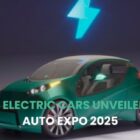The development of metropolitan scenes is a complex dance between open organizations and confidential endeavors, a tango of interests and desires. Delhi, the clamoring heart of India, typifies this intricacy as it explores the change toward a maintainable future. One of the vital features of this change is the turn of events and extension of Electric Vehicle (EV) fast charging foundation. This article dives into the tangled transaction among public and confidential entertainers, disentangling the complicated strings that weave the embroidery of progress in Delhi’s EV charging environment.
The Quest for Maintainable Mobility
Delhi, in the same way as other different cities, faces an existential test – the need to rethink its portability scene for a greener and more feasible tomorrow. The squeezing worries of air contamination, ozone-harming substance emanations, and gridlock constrain the city to look towards electric vehicles as an encouraging sign. In this excursion towards manageable portability of ev dc fast charging in Delhi, the job of public and confidential coordinated effort is evident.
Public Strategy: The Catalyst
The wheels of change in Delhi have gotten underway by various public approaches and guidelines. These act as the compass that directs the bearing of EV foundation improvement. The Delhi Electric Vehicle Strategy of 2020 stands as a demonstration of the public authority’s obligation to establish an EV-accommodating climate. It offers a variety of motivating forces, including monetary sponsorships, street charge exclusions, and free stopping to EV proprietors. These motivators animate interest in electric vehicles and boost the extension of the charging infrastructure.
Challenges in EV Charging Infrastructure
The excursion towards laying out a strong EV charging network in Delhi has its challenges. It’s a mind-boggling scene filled with perplexities. One of the chief difficulties is the deficiency of satisfactory charging infrastructure. EV reception generally depends upon the accessibility and openness of charging stations. Delhi, in the same way as other urban communities universally, wrestles with the chicken-and-egg difficulty – potential EV purchasers falter because of the shortage of charging foundations, while financial backers are reluctant to construct additional charging stations without an adequate client base.
The Public-Private Symbiosis
In this complicated trap of difficulties and potential open doors, the cooperation between open foundations and confidential undertakings arises as the key part of progress. Public-private organizations (PPPs) in the domain of EV charging infrastructure rise above conventional methods of collaboration. They involve a complicated understanding between government elements, service organizations, automakers, and new businesses, each with its one-of-a-kind job and desires.
Government Drives: Setting the Stage
The Delhi government assumes an essential part in making way for cooperation. It uses its administrative and monetary clout to establish a climate helpful for private speculation. Notwithstanding motivators for EV purchasers, it additionally offers impetuses to private substances ready to put resources into charging infrastructure. These motivations range from land distribution for charging stations to the waiver of power charges for ev dc fast charging in Delhi. Moreover, the public authority works with the cycle by speeding up licenses and endorsements, guaranteeing a smoother way for private financial backers.
Confidential Speculation: Filling the Void
Confidential endeavors, driven by benefit thought processes, have perceived the expanding EV market in Delhi as a rewarding and open door. They offer development and capital that might be of some value, fundamental components in defeating foundation challenges. New businesses like “ChargeMe” and laid-out energy monsters like Goodbye Power are cooperating with the public authority to lay out an organization of fast charging stations across the city. Their ventures support the infrastructure as well as act as a demonstration of the cooperative energy between open vision and confidential desire.
The Service Organizations’ Job: Fuelling the Future
Service organizations are vital entertainers in this harmonious relationship. They give the electrical spine after that, the charging infrastructure rests. Cooperation with service organizations is diverse, including matrix advancement, load the executives, and request determining. The requirement for collaboration is central to guarantee that EV charging doesn’t over-burden the network, causing power outages or failures.
Automakers: The Impetuses of Change
Automakers are likewise assuming a synergist part in improving EV charging foundations. Numerous car goliaths are putting resources into charging networks, understanding that the outcome of their EV models is unpredictably connected to the accessibility of charging stations. This cooperative energy among automakers and charging foundation suppliers can speed up the progress to electric versatility.
Developments in Charging Technology
The association between public and confidential substances reaches out to past speculations and motivators. It envelops the constant quest for advancement in charging innovation. Delhi, as a rambling city, requires fast and effective charging answers to take care of the different necessities of its occupants.
Progressed Charging Solutions
Public-private cooperation cultivates the improvement of cutting-edge charging arrangements. Fast charging stations are currently outfitted with state-of-the-art innovation, offering highlights like constant checking, distant administration, and installment mix. These developments upgrade the client experience, tending to one of the critical worries of potential EV purchasers.
Lattice Integration
Moreover, public and confidential entertainers investigate savvy lattice mixes to upgrade energy use and decrease costs. The coordinated effort empowers the production of charging networks that can shrewdly oversee energy interest, drawing power during off-top hours or when sustainable power sources are plentiful.
Interoperability and Standardization
The harmonization of charging norms is one more feature of this cooperation. Public organizations work with private charging network suppliers to guarantee interoperability and normalization of charging connectors and conventions. This guarantees that EV clients can charge their vehicles at any charging station, no matter what the supplier, cultivating a consistent encounter.
Information Driven Insights
Information is the backbone of present-day foundation advancement. Public-private associations work with the assortment and sharing of information connected with EV charging utilization. This information-driven approach considers better preparation, development, and enhancement of charging infrastructure.
Monetary Models and Income-Sharing
The coordinated effort among public and confidential substances likewise stretches out to monetary models and income sharing. Creative models, for example, income sharing arrangements, empower privately owned businesses to recover their speculations while guaranteeing reasonable and serious buyer charging rates.



